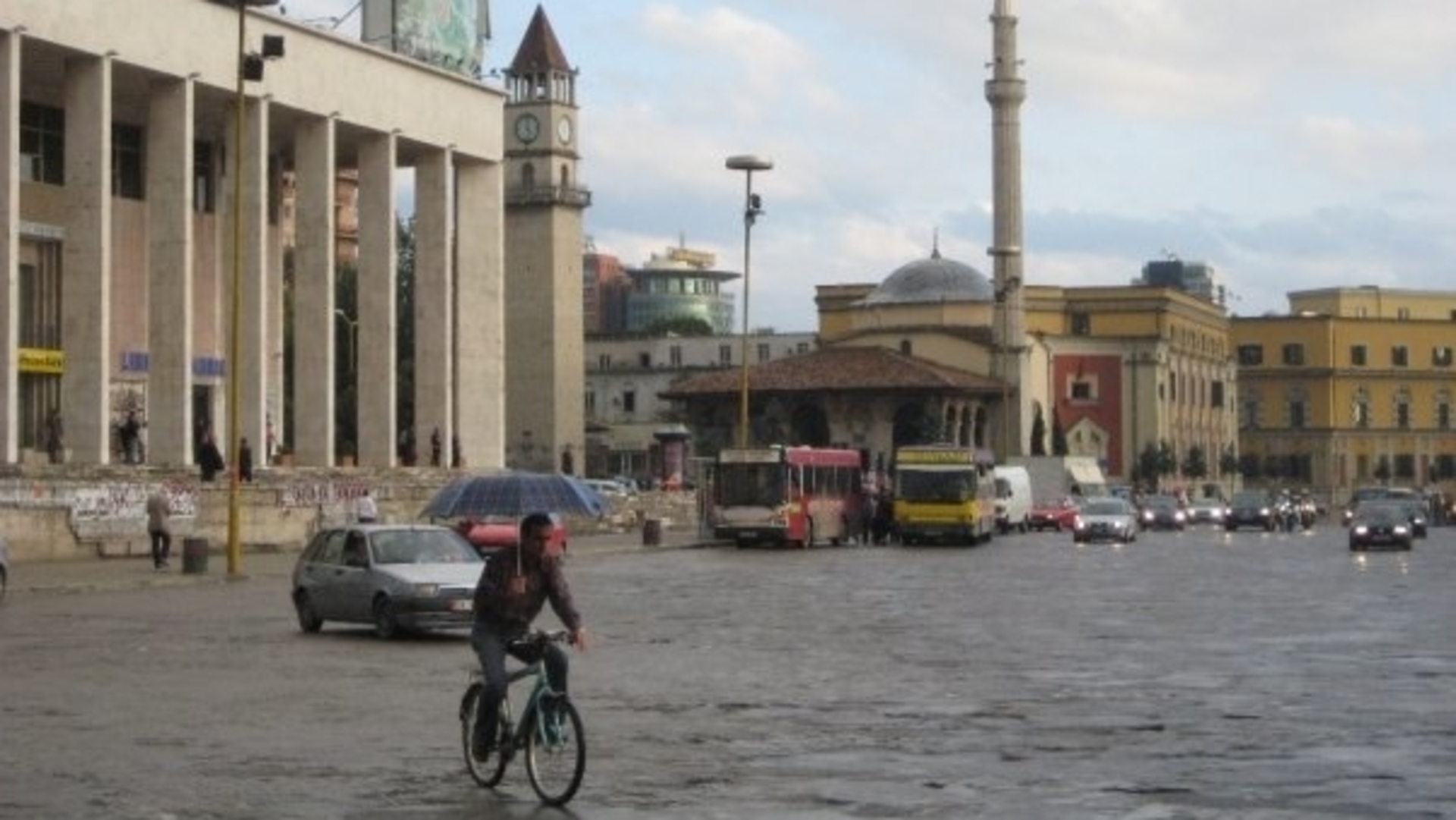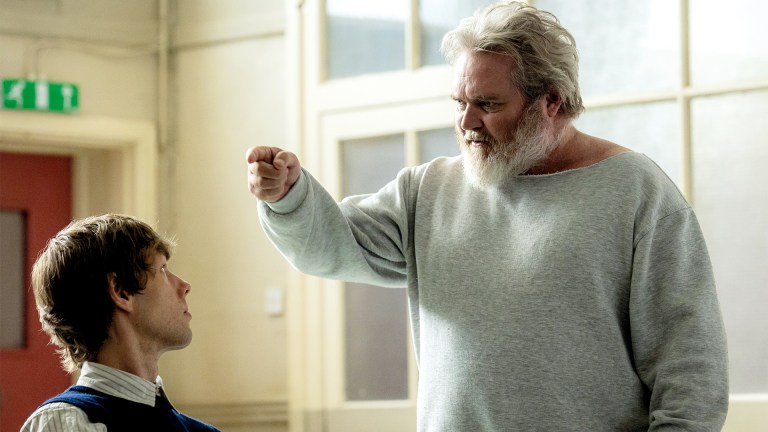Roma are the most oppressed people in Europe
Like all cultures, the Romani have a complex story which has suffered from misrepresentation and attempts to define ‘Roma’ from the outside with an easy definition. Recent history is full of shame. In Czechia, the WW2-era Nazi concentration camp at Lety stands as a monument to our ignorance. This site, where many Roma were killed or held before being shipped to Auschwitz, has been functioning as a pig farm for decades. The government ran this pig farm for several years before selling it into private hands before any embarrassment could surface. In August last year, Reuters reported that the government had finally agreed to buy back the site (from a willing seller), and to end the its absurd insult.
At present, Roma are the most oppressed people in Europe. For the general public in the streets all over the Balkans today, Roma are metonymous with rubbish. As the Romani poet Gregory Dufunia Kwiek writes: ‘Hello, I’m the common Rom. / What do you mean, we are trash, the lowest of the low? / Then we probably deserve the way gadjé treat us.’ A gadjé being a non-Roma.
Waste is by definition something that you do not want to be bound to. But we are. We merely have the ability to relocate and abstract it. Politics is bound to it too. For years the post-communist Albanian governments were not incentivised to develop waste infrastructure. Large weights of waste were being processed for free by the poorest members in society, thus keeping the hyper-precariat busy during very volatile times – post-Yugoslav wars and newly opened borders saw tragedy and migration; in 1997 Albania became a lawless state with armed gangs running amok after huge pyramid schemes erased citizen’s bank accounts, and four were killed in 2011 after government officers fired on anti-corruption protesters marching on the ministerial office.
The average household income for the Roma in the area is €68 a month, compared with a €175 average
It is paradoxical, when you see pictures of the Ganges, or Tirana’s Lana, or any Albanian river anywhere near a human settlement, it seems to be drowning in waste. In actual fact, poorer countries tend to produce less waste than richer ones. But as they develop, waste volume grows and waste infrastructure investments are necessary. The trend for the last few years in Albania has been to invest in incinerators and convert old dump sites to landfills. Deals are struck to import waste that can be processed and sold as energy for a profit. These are hugely unpopular political sagas for people in cities like Tirana whose waste production has doubled in a decade without a matching development, meaning three fifths of their own waste goes untreated by services and burns on riverside wastelands. From the city centre shade of high foreign bank buildings, it is only a ten-minute upstream walk along the river, over former shanty ground, until you reach an unofficial dump site of enormous proportions.
Although incineration is a useful tool, experts generally advise that a comprehensive long-term plan should centre around: reducing waste production, investing in source-sorted municipal systems (green bin, black box), and functioning recycling infrastructure before incineration.
Seven kilometres from the centre of Tirana is Sharra – the oldest open dump site in the region around which toxic plumes rise due to the unregulated burning of rubbish. The north-eastern corner of the city is used to being covered by toxic smog. The site is now being developed, which spells an unknown future for the large Roma shanty which sits on the edge of the site. The residents have already been threatened formally and informally.
Advertising helps fund Big Issue’s mission to end poverty
The open dump is being converted to a landfill in a half-public, half-private partnership, the contract for which was awarded to a company owned by a local politician with the ruling ‘Socialist’ party (don’t let the name fool you). Such hybrid funding initiatives have been used before as a tool to siphon public money into private hands.
Controversy surrounded the site in 2016 when a 17-year-old local worker died. Despite the Mayor’s (also ‘Socialist’) promises to the contrary, it was obvious no one was working in safely regulated conditions. Without contracts or health legislation, they are freely exposed to the toxicity. Most of the Roma who have jobs, have jobs like this; precarious, dangerous and exploitive. The average household income for the Roma in the area is €68 a month, compared with a €175 average.
Houseplant tours
Albanian owned Dutch registered companies like Integrated Energy BV (IE) enjoy Dutch tax advantages and, ahem, anonymity while they win contracts for similar developments. These so-called ‘post-box’ companies are quite popular, both with dubious businessmen and tourists; Kamerplant Tours started taking groups around Amsterdam to peak through the letter boxes of deserted foreign-interest offices (and they filmed a tour too). The company name is the Dutch word for houseplant, as this is the main attraction to see in each, otherwise empty, office. Absurdly, according to Dutch financial journalist Arno Wellens, the Dutch authorities use the presence of a house plant as an indicator that an office is a functioning company rather than just a ‘paper office’. The result is thousands of luscious house plants in deserted Amsterdam offices. After pressure from the EU, the Dutch government has agreed to release the names of people who own more than 25 per cent of such companies.
Among the known owners of IE is Klodian Zoto, who is also the sole owner of Integrated Technology Service (ITS), while the group of Directors includes two former members of Sustainable Growth Group (SSG), a company known in the UK for its corruption convictions – businessmen connected with SSG and some of its subsidiaries were the first to be convicted with the UK Bribery Act 2010 after a £23 million fraud to dupe people into investing in Jatropha tree plants in Cambodia, a green biofuel. Given the historical precedent, many suspect that some of the unknown persons associated with these Dutch companies who have been awarded hundreds of millions of Euros to process Albanian waste have close links to the Albanian government.
Repeatedly these contracts are won after non-competitive races with sometimes only one bidder, or the alternative bids are from front companies with the same owners. Other non-associates who attempt to prepare bids become embroiled in legal trouble and fall silent. This got the attention of Albanian investigative publication Exit.al who detailed a network of individuals raking in millions of Euros of public money with a web of dubious companies centred around a single office in Tirana — and charging citizens up to €29 (VAT excluded) per incinerated ton for the pleasure.
Advertising helps fund Big Issue’s mission to end poverty
Mention such things to the Prime Minister Edi Rama and prepare to listen to a wave of rhetoric about how you are part of the problem. His modi operandi are blame and shifting rhetoric that leaves no space for dialogue.
We want assimilation, but only on our own terms
When I first arrived in Albania two years ago, I initially held somewhat supportive views of Rama. Many foreigners do, including elites and internationals, as he knows how to present himself as a progressive cosmopolitan leader. His actions and his words show considerable discrepancy and it seems he has no real agenda or vision besides remaining in power.
For all that, it is the Europeans who are most deserving of criticism. Their engagement with Albania is likewise self-serving. Foreigners swoon because Rama knows to reassure them of their fears, and they have fears: fears of the ‘Other’.
The Romani are Europeans, but they are also the internal Other of Europe. While the refugees suffering on the islands of Greece or the borders of France or the camps of Turkey are an external Other. The Balkan peninsula and Eastern Europe is an Other too. When Romani started to drift westward with EU integration, fast-track legislation was put in place to allow a route to maintain and return them. Western commentators deplored the treatment of the Romani Other by the Eastern European Other, ignoring their own governments’ complicity and hypocrisy in effectively deporting them. Western Europe looks to the Balkans and sees a more primitive version of itself. Rama can maintain respectability because he can exploit this ignorance and play on their orientalism while acting as a progressive saviour.
While trash has historically been used as a dark commodity by mafias and governments who wish to appropriate cash, oppress the poor, or remove dead bodies, people such as the Romani are also used as such a dark commodity.
Roma are not subjugated much worse in the Balkans than in Western Europe. Yes, there is less access to utilities, less attempt at care, and more deeply intractable problems, but the root of the issue is the very same. Except that there the oppressor is an Other themselves, and so fair game. We want assimilation, but only on our own terms.
Advertising helps fund Big Issue’s mission to end poverty
The European project has incredible potential which will only be realised with brave reform and a new transparency. A realisation and re-focus of our perspective on Others and ourselves is the first step in ensuring the necessary dogged pragmatisms are not polluted from the beginning.
The homeless person on the street is, again, someone to be assimilated on our own terms. I have been lucky, kindness has seen me find a bit of shelter as streets and parks and rooftops became deathly cold. I look for a friend all over the city but I cannot find him, like the Romani and like the ducks, it is a mystery where he is now this winter, hopefully, he found shelter too.









